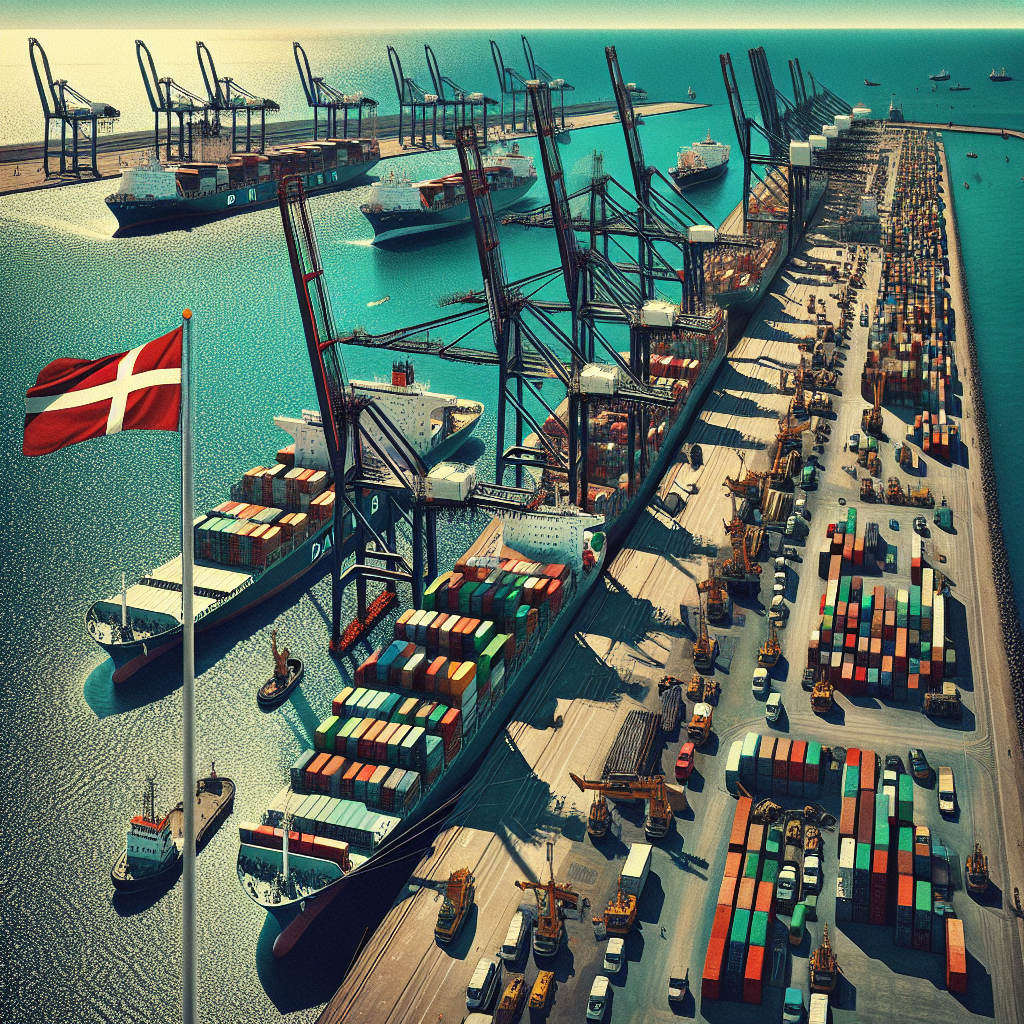As an economist with a deep understanding of macroeconomic policies in Nordic countries, I have always been fascinated by the role that Denmark plays in the Baltic Sea trade. Having obtained my PhD in this field, I have spent years researching and analyzing the complexities of the Danish economy, particularly its impact on the trade dynamics in the Baltic Sea region.
The Strategic Location of Denmark
Denmark’s geographical positioning as a gateway to the Baltic Sea has been a significant factor in its historical and contemporary role in trade. With its access to the North Sea and the Baltic Sea, Denmark has long been a hub for maritime trade, connecting Northern Europe with the rest of the world. Major ports such as Copenhagen, Aarhus, and Fredericia have facilitated the movement of goods and services, making Denmark a pivotal player in the Baltic Sea trade network.
The Significance of the Baltic Sea Trade
The Baltic Sea region has been a significant area for international trade, with countries such as Sweden, Finland, Poland, and the Baltic states heavily reliant on the sea routes for their imports and exports. Denmark, with its strategic access to this region, has played a crucial role in facilitating trade flows and fostering economic ties with these nations.
Furthermore, Denmark’s participation in the EU and its close economic cooperation with Germany have further solidified its role in the Baltic Sea trade. This has not only allowed Danish businesses to expand their reach into the larger European market but has also provided a gateway for goods from other Baltic Sea countries to enter the European market through Denmark.
Danish Industries Driving Baltic Sea Trade
Danish industries, such as shipping, renewable energy, and manufacturing, have been instrumental in driving the Baltic Sea trade. The maritime industry, in particular, has a strong presence in Denmark, making it a prominent player in the transportation of goods across the Baltic Sea. Danish shipping companies, including Maersk Line, have a global footprint and a significant influence on the Baltic Sea trade routes.
- Shipping – The Danish shipping industry has a rich history and a strong presence in the Baltic Sea trade, making Denmark a key player in maritime transportation.
- Renewable Energy – Denmark’s expertise in renewable energy, particularly wind power, has positioned the country as a leader in sustainable energy solutions for the Baltic Sea region.
- Manufacturing – Danish manufacturing companies have contributed to the production and export of goods that are vital to the Baltic Sea trade, further enhancing Denmark’s role in the region.
The Impact of Danish Economic Policies
Denmark’s economic policies have also had a significant impact on its role in Baltic Sea trade. The country’s commitment to free trade, innovation, and sustainability has made it an attractive partner for countries in the Baltic Sea region. Denmark’s focus on environmental sustainability and clean energy aligns with the priorities of its Baltic Sea neighbors, fostering collaboration and trade partnerships.
Challenges and Opportunities
While Denmark’s position in Baltic Sea trade is strong, it is not without challenges. The ongoing geopolitical tensions in the region and the evolving dynamics of global trade present uncertainties for Danish businesses operating in the Baltic Sea. However, these challenges are accompanied by opportunities for growth and diversification.
Opportunities for Growth
Denmark’s expertise in innovation and technology presents opportunities for further collaboration with Baltic Sea countries. The push for digitalization and green initiatives in the region creates avenues for Danish businesses to engage in sustainable trade practices and investment opportunities.
Adapting to Evolving Trade Dynamics
As global trade dynamics continue to evolve, Denmark’s role in the Baltic Sea trade will require flexibility and adaptability. Investing in infrastructure, strengthening trade partnerships, and harnessing technological advancements will be crucial for Denmark to maintain its position as a key player in the Baltic Sea trade network.
The Future of Danish-Baltic Sea Trade Relations
As I continue to monitor and analyze the economic landscape of the Baltic Sea region, it is evident that Denmark’s role in shaping the trade dynamics in this area will remain significant. The country’s strategic location, strong industries, and progressive economic policies position it as a key influencer in Baltic Sea trade.
Looking ahead, the collaboration between Denmark and Baltic Sea countries is poised to deepen, driven by mutual economic interests and shared commitments to sustainability. Danish businesses will continue to leverage their expertise and resources to foster trade partnerships and contribute to the growth and development of the Baltic Sea region.
In Conclusion
Denmark’s role in Baltic Sea trade is multifaceted and holds immense potential for the future. With its strategic location, thriving industries, and forward-thinking economic policies, Denmark will continue to be a driving force in shaping the trade dynamics of the Baltic Sea region.
As an economist deeply invested in this field, I am confident that Denmark’s influence in Baltic Sea trade will only strengthen in the years to come, paving the way for sustainable and mutually beneficial economic cooperation among the countries in the region.





